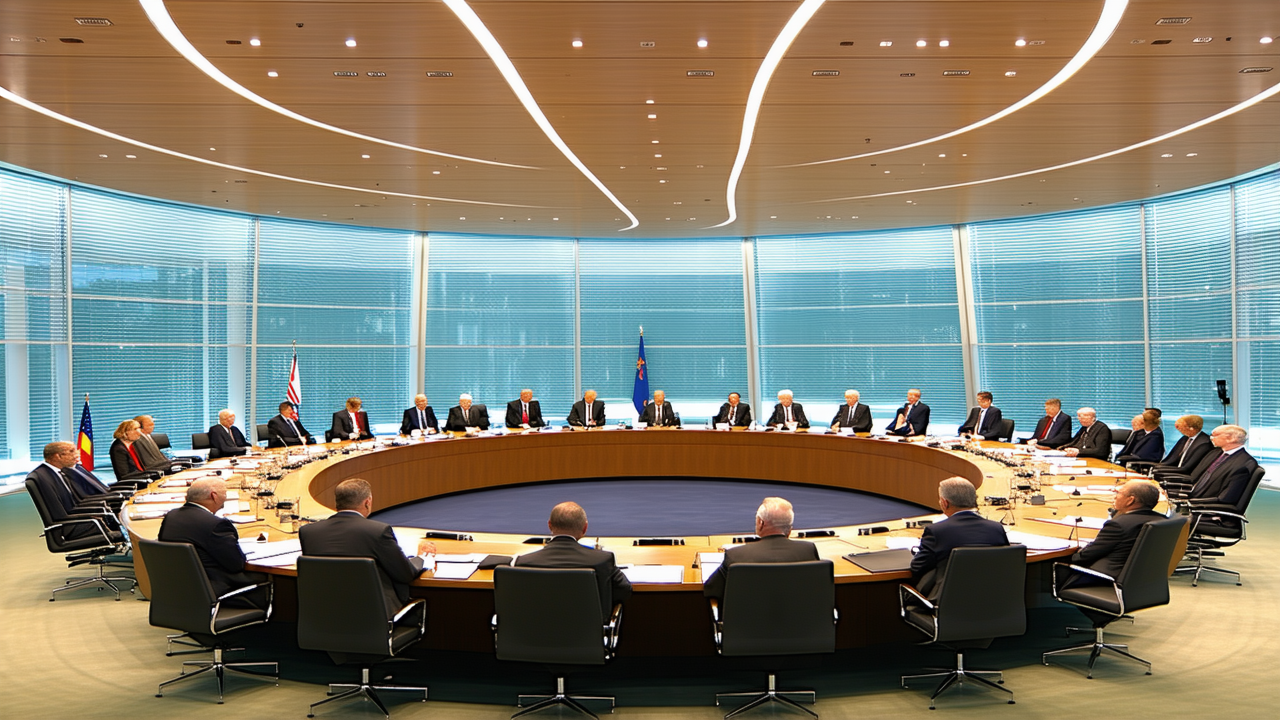Germany Establishes Its First Ever National Security Council Directly Under the Chancellor's Office in History
Keywords: Germany, National Security Council, Merz, Chancellor's Office, National Security Council, Ministry of Defense, Ministry of Foreign Affairs, International Security, Crisis Response, Intelligence Integration, Russia-Ukraine War
Back to News List
Saturday, 09 August 2025
The German federal government announced today that it will establish the first-ever national security council (Nationaler Sicherheitsrat, NSR) directly under the Chancellor's Office by the end of August, led by Chancellor Friedrich Merz. The council will integrate cross-ministerial security resources to enhance the country's crisis response and strategic planning capabilities. The Russia-Ukraine war is entering its fourth year, and the European security situation remains tense. The Chancellor's Office stated that Merz views the National Security Council as a crucial step in implementing the 'Zeitenwende' (turning point) proposed by former Chancellor Olaf Scholz after the war began into the government's daily operations. The idea of establishing a National Security Council has been discussed in Germany for decades but has never been realized, mainly due to the constitutional guarantee of the 'ministerial principle' (Ressortprinzip), which stipulates that ministers have high autonomy within their respective areas of responsibility, limiting the Chancellor's direct intervention in the operations of ministries. Previously, the Federal Foreign Office also feared that the establishment of the National Security Council would weaken the Foreign Office's authority, hence opposing the creation of this cross-ministerial security institution directly under the Chancellor's Office. In May this year, the coalition government led by the Christian Democratic Union (CDU) took office, marking the first time in many years that the Chancellor's Office and the Foreign Office have been controlled by the same party, resolving the long-standing dispute over authority and enabling the plan to establish the National Security Council to be realized. The first meeting of the National Security Council will be held on the 27th of this month at the Ministry of Defense building. The new institution will replace the current Federal Security Council, responsible for arms sales, and the previous security cabinet meetings convened during major national security crises. The members of the National Security Council include the Chancellor, the head of the Chancellor's Office, as well as ministers from the Ministry of Foreign Affairs, the Ministry of Defense, the Ministry of the Interior, the Ministry of Finance, the Ministry of Economics, the Ministry of Justice, the Ministry of Economic Cooperation and Development, and the Ministry of Digital Affairs. If necessary, officials from the federal states, international security representatives from NATO or the EU, and external experts can be invited to attend. The office will be located within the Chancellor's Office, led by Jacob Schrot, the head of Merz's office, with a staff of 13 people responsible for cross-ministerial coordination and meeting preparations. According to the Chancellor's Office, the primary goal of the National Security Council is to break down 'information silos' by integrating knowledge and intelligence held by various ministries and intelligence agencies to ensure that national security decisions have complete and up-to-date basis. Second, the National Security Council will be responsible for early identification of potential long-term security threats, developing response plans, and updating the 'National Security Strategy' formulated by the previous government. Enhancing the professionalism of Germany's security system is also an important task for the National Security Council, including establishing secure communication systems to prevent eavesdropping and regularly conducting drills for major national security crises, such as planning how various ministries and relevant agencies should coordinate and respond immediately in the event of a hijacking of a German passenger aircraft.
